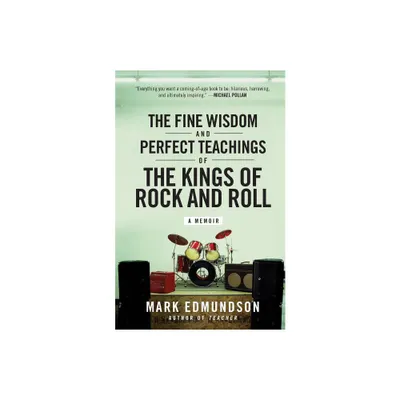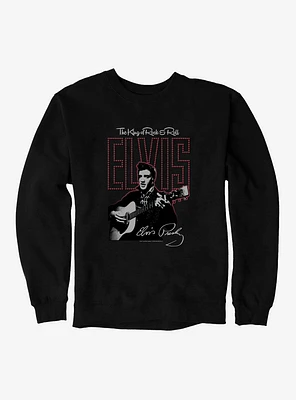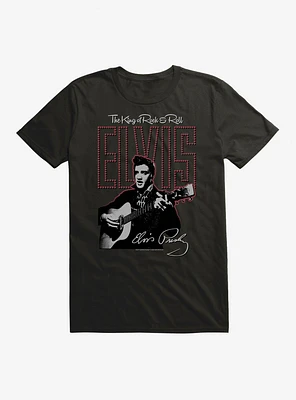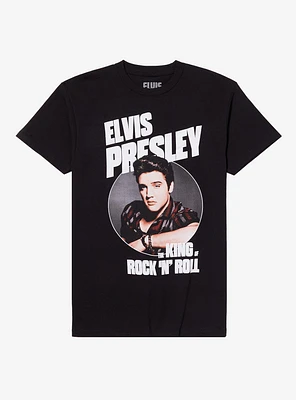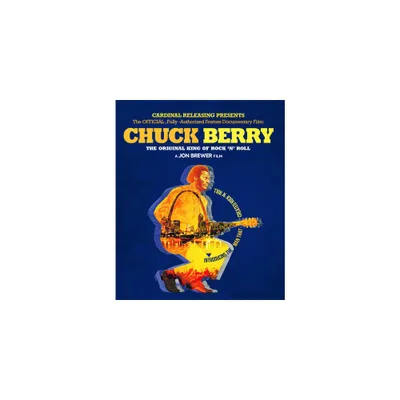Home
King of Rock and Roll [Reprise]
Loading Inventory...
Barnes and Noble
King of Rock and Roll [Reprise]
Current price: $16.99
![King of Rock and Roll [Reprise]](https://cdn.mall.adeptmind.ai/https%3A%2F%2Fprodimage.images-bn.com%2Fpimages%2F0816651019229_p0_v1_s600x595.jpg_640x.jpg)
![King of Rock and Roll [Reprise]](https://cdn.mall.adeptmind.ai/https%3A%2F%2Fprodimage.images-bn.com%2Fpimages%2F0816651019229_p0_v1_s600x595.jpg_640x.jpg)
Barnes and Noble
King of Rock and Roll [Reprise]
Current price: $16.99
Loading Inventory...
Size: CD
*Product Information may vary - to confirm product availability, pricing, and additional information please contact Barnes and Noble
In contrast to his 1970
Reprise
album
The Rill Thing
, which constituted a serious updating of his sound, complete with a brace of new songs,
Little Richard
's
King of Rock & Roll
was deliberately less ambitious, built around covers of material that early-'70s audiences would have known well by way of
Motown
,
the Rolling Stones
Three Dog Night
Creedence Clearwater Revival
, et al. These included
"Brown Sugar,"
"The Way You Do the Things You Do,"
"Joy to the World,"
"Dancing in the Street,"
and
"Born on the Bayou."
Its user-friendly song list aside, this ended up a pretty powerful and challenging record in its own right, with
Richard
putting his distinct spin on much of the material --
"Dancing in the Street"
was the jewel in this oft-overlooked collection, stretched out (without seeming stretched at all) to over five minutes by his vocal acrobatics;
"Joy to the World"
is similarly expanded, the second half in proto-
rap
fashion, which makes for a rousing and compelling appendix to an exquisitely appealing first half (which was how the song should have been edited for a single release). Even a chestnut like
"Midnight Special"
gets a jolt of high-energy electricity from
's stylized
soul
shoutings, an extended sax break, and the soaring backing chorus. A totally reconstructed, quick-tempo
"The Way You Do the Things You Do"
won't make anyone forget the more familiar
ballad
treatment, but along with his complete reshaping of
Hank Williams
'
"I'm So Lonesome I Could Cry"
-- and the latter is so good that it makes one wonder why no one thought to get
to do a
Ray Charles
-type
country & western
album -- it shows how
could make any song into one of his, complete with the appropriate upper-register "woos." The only weak moments here are, sad to say,
's one fair original,
"In the Name,"
"Green Power,"
co-authored by producer
H.B. Barnum
, which is a good vehicle for
but totally nondescript as a song. Otherwise, this is a record that deserved a lot more respect than it received and far more sales than it generated, and is still well worth hearing. ~ Bruce Eder
Reprise
album
The Rill Thing
, which constituted a serious updating of his sound, complete with a brace of new songs,
Little Richard
's
King of Rock & Roll
was deliberately less ambitious, built around covers of material that early-'70s audiences would have known well by way of
Motown
,
the Rolling Stones
Three Dog Night
Creedence Clearwater Revival
, et al. These included
"Brown Sugar,"
"The Way You Do the Things You Do,"
"Joy to the World,"
"Dancing in the Street,"
and
"Born on the Bayou."
Its user-friendly song list aside, this ended up a pretty powerful and challenging record in its own right, with
Richard
putting his distinct spin on much of the material --
"Dancing in the Street"
was the jewel in this oft-overlooked collection, stretched out (without seeming stretched at all) to over five minutes by his vocal acrobatics;
"Joy to the World"
is similarly expanded, the second half in proto-
rap
fashion, which makes for a rousing and compelling appendix to an exquisitely appealing first half (which was how the song should have been edited for a single release). Even a chestnut like
"Midnight Special"
gets a jolt of high-energy electricity from
's stylized
soul
shoutings, an extended sax break, and the soaring backing chorus. A totally reconstructed, quick-tempo
"The Way You Do the Things You Do"
won't make anyone forget the more familiar
ballad
treatment, but along with his complete reshaping of
Hank Williams
'
"I'm So Lonesome I Could Cry"
-- and the latter is so good that it makes one wonder why no one thought to get
to do a
Ray Charles
-type
country & western
album -- it shows how
could make any song into one of his, complete with the appropriate upper-register "woos." The only weak moments here are, sad to say,
's one fair original,
"In the Name,"
"Green Power,"
co-authored by producer
H.B. Barnum
, which is a good vehicle for
but totally nondescript as a song. Otherwise, this is a record that deserved a lot more respect than it received and far more sales than it generated, and is still well worth hearing. ~ Bruce Eder
